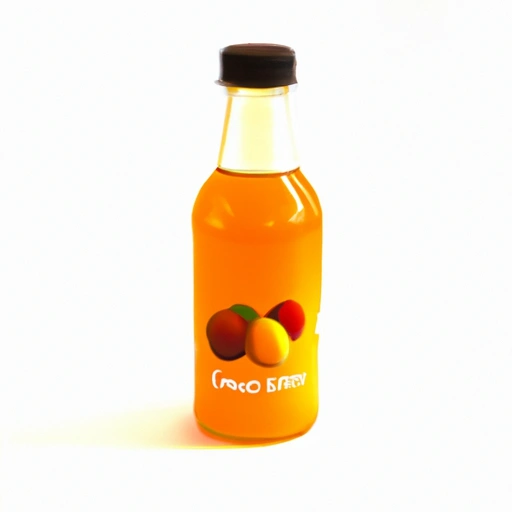Apricot Nectar
Description

Apricot nectar is a delectable and versatile food ingredient derived from the juice of apricots. It is often found as a concentrated liquid, sometimes sweetened, and can be diluted with water or other liquids to create a delightful beverage or used as a flavor enhancer in various culinary creations. Apricot nectar is commonly available in both cans and bottles and can be found in grocery stores around the world, catering to a wide range of cooking traditions.
Common uses
Apricot nectar is enjoyed in a variety of ways around the world. While often consumed as a refreshing drink, it is also used to sweeten breakfast dishes like oatmeal and yogurt, as well as to create delectable sauces, glazes, and dressings. In baking, apricot nectar adds moisture and a gentle apricot flavor to cakes, muffins, and pastries. It is also a key ingredient in certain jams, jellies, and fruit preserves.
Nutritional value
Calories
Apricot nectar contains approximately 48 calories per 100 milliliters (3.4 oz/0.42 cups).
Protein
This nectar provides about 0.5 grams of protein per 100 milliliters.
Fat
Apricot nectar is virtually fat-free, with less than 0.1 grams per 100 milliliters.
Carbohydrates
It is primarily composed of carbohydrates, mostly sugars, with about 11.2 grams per 100 milliliters.
Vitamins
Rich in vitamins, especially Vitamin A and Vitamin C, apricot nectar can contribute to your daily vitamin intake.
Minerals
It also contains essential minerals such as potassium and traces of iron and calcium.
Health benefits
Apricot nectar is known for its health benefits, including aiding digestion due to its fiber content, boosting the immune system through its vitamin C, and promoting healthy vision with vitamin A. Additionally, the presence of antioxidants in apricots may contribute to overall health and wellness.
Potential risks
While apricot nectar can be a part of a healthy diet, it is important to consume it in moderation due to its sugar content. Overconsumption may lead to an increase in caloric intake and potential weight gain. People with diabetes or those watching their sugar intake should be particularly mindful of their consumption.
Common recipes
Apricot nectar is used in various recipes such as apricot chicken, fruit tarts, smoothies, and cocktails. It also serves as a base for fruit punches and can be a key ingredient in Middle Eastern dishes like tagines and stews.
Cooking methods
This nectar can be used in simmering, baking, blending, and glazing techniques, enhancing the flavor and texture of numerous dishes.
Pairing with other ingredients
Apricot nectar pairs well with spices such as cinnamon, nutmeg, and vanilla, as well as with proteins like pork and poultry. It also complements other fruits like berries and citrus.
Summary
Apricot nectar is a delightful and multifaceted ingredient that transcends cultural culinary boundaries. With its sweet-tart flavor profile, it enhances beverages, sweet treats, and savory dishes alike. Its nutritional benefits and versatility in recipes make it a valuable addition to any kitchen around the world.